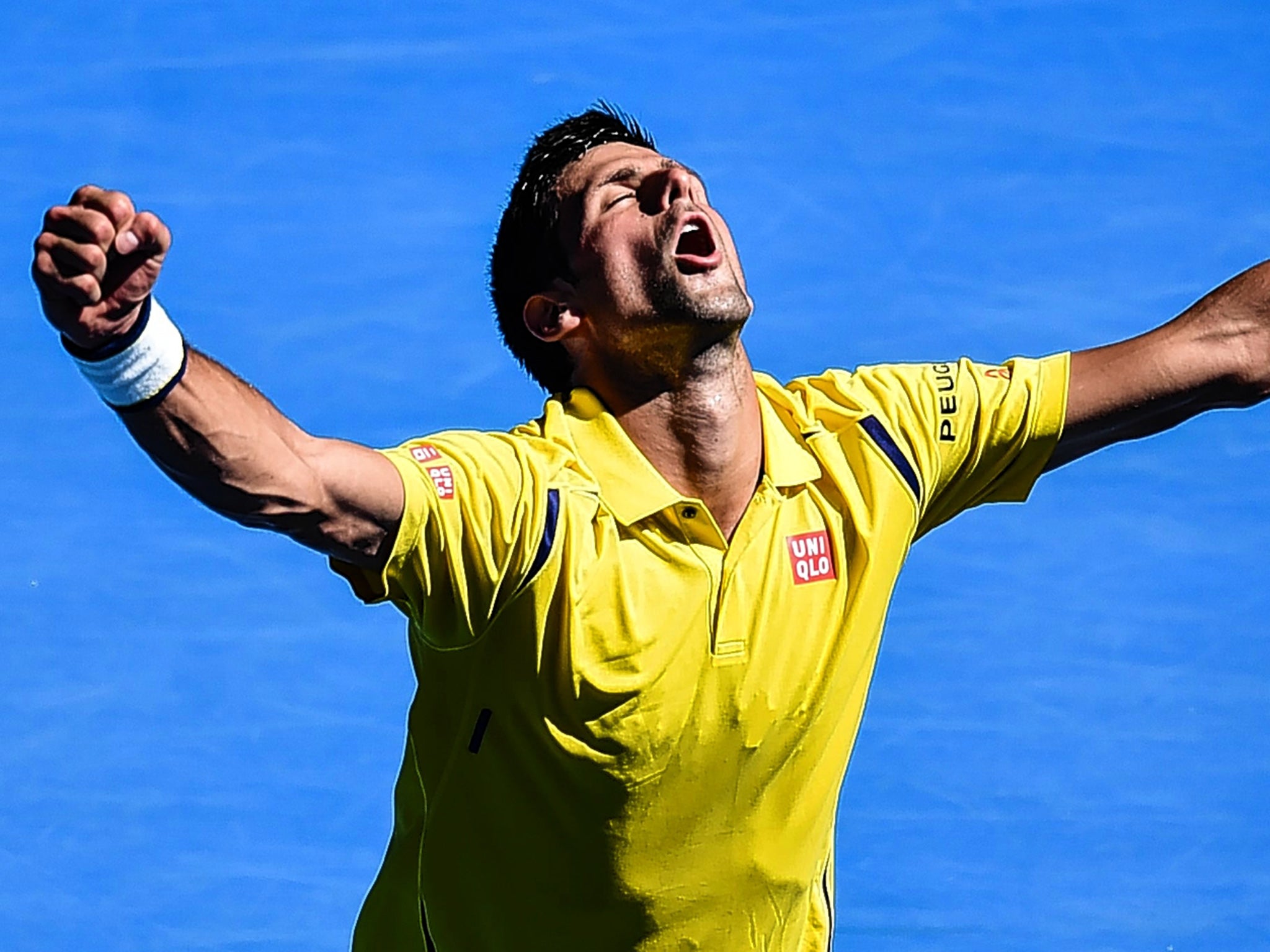Australian Open: Victory despite 100 unforced errors is relief for Novak Djokovic
"It gives me great joy to know I can’t get worse than I played today"

Your support helps us to tell the story
From reproductive rights to climate change to Big Tech, The Independent is on the ground when the story is developing. Whether it's investigating the financials of Elon Musk's pro-Trump PAC or producing our latest documentary, 'The A Word', which shines a light on the American women fighting for reproductive rights, we know how important it is to parse out the facts from the messaging.
At such a critical moment in US history, we need reporters on the ground. Your donation allows us to keep sending journalists to speak to both sides of the story.
The Independent is trusted by Americans across the entire political spectrum. And unlike many other quality news outlets, we choose not to lock Americans out of our reporting and analysis with paywalls. We believe quality journalism should be available to everyone, paid for by those who can afford it.
Your support makes all the difference.Novak Djokovic is through to his 27th consecutive Grand Slam quarter-final, but another statistic dominated the world No 1’s thoughts after his 6-3, 6-7, 6-4, 4-6, 6-3 victory here yesterday over Gilles Simon in the fourth round of the Australian Open.
Djokovic is renowned for his ruthless efficiency and consistent ball-striking, but on this occasion the 28-year-old Serb made exactly 100 unforced errors during the four hours and 32 minutes he was kept out on court. “I don’t think I’ve made anywhere close to 100 before,” a relieved Djokovic said afterwards. “It actually gives me great joy to know that I can’t get worse than what I played today.”
Simon, the world No 15, is one of the game’s most dogged retrievers. Although the 31-year-old Frenchman lacks the power of the very best players, he can frustrate them with his ability to keep making opponents hit the extra ball. There were times, especially at the end of the second and fourth sets, when Djokovic appeared to run out of both energy and ideas as he hit a succession of drop shots, nearly all of which Simon got back.
“It’s not easy when you’re not feeling the ball well and when you’re not moving that great,” Djokovic said. “When you’re playing someone like Simon, he senses that and he makes you play an extra shot. Then you’re trying to cut down on the length of the rallies, go for a winner or go for a drop shot. Sometimes you have a brain freeze, if I can call it that way. That’s what happened to me many times with those drop shots.”
If there was a positive for Djokovic other than the simple fact that he won it was the quality of his serving, which is arguably the area of his game that has improved most in recent years. In the final set in particular he served consistently well.
Djokovic, who has lost only one match in the last five months and has reached the final of every tournament he has played since the first week of last year, was making unforced errors from the start, spraying the ball to all corners of the court. Whenever he came good a bad run of points almost invariably followed. Simon simply kept the rallies going as long as possible until Djokovic made a mistake.
“Sometimes I feel players don’t always play their best when they play Novak,” Simon said. “At the start Novak is playing fantastic and the match is over after 20 minutes. I just try to do my best, point after point, minute after minute.”
Simon said the match finally changed when he was serving at 1-2 and 40-15 in the deciding set. “From that moment he only hit good shots all the way until he was leading 5-1. He was hitting the ball harder. He took more risks and the balls were staying in. He hit a lot of lines and was very aggressive. He definitely played better in the end.”
Kei Nishikori, who beat Djokovic in the semi-finals of the 2014 US Open, will be his quarter-final opponent tomorrow, by which time the Serb will expect to have recovered his energy levels. “I’ve had worse situations where I had much less time to recover after long matches, so I’m sure I’ll be fine,” he said.
In reaching his 27th consecutive Grand Slam quarter-final Djokovic matched the record of Jimmy Connors. They are joint second in the Open era list behind Roger Federer, who holds the record with 37. Djokovic, who is aiming to win his sixth Australian Open, is through to the quarter-finals for the ninth year in a row, though here too he still trails Federer, who reached 11 consecutive quarter-finals between 2004 and 2014 and yesterday reached his 12th in total at Melbourne Park.
Federer’s fourth-round victory was in complete contrast to Djokovic’s as the world No 3 beat David Goffin 6-2, 6-1, 6-4 in just 88 minutes. That was just as well considering that the match did not start until shortly before 11pm.
The Swiss, who now faces Tomas Berdych, said he was not surprised by the problems Simon had posed Djokovic. “He plays every match like that,” Federer said. “He makes you miss. He makes you go for the lines and he runs down a lot of balls. A lot of points end in errors.”
Join our commenting forum
Join thought-provoking conversations, follow other Independent readers and see their replies
Comments